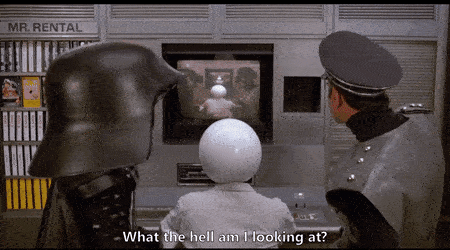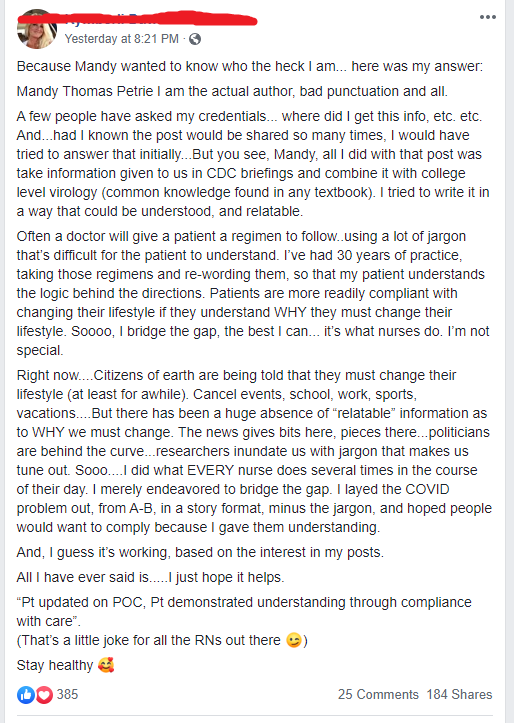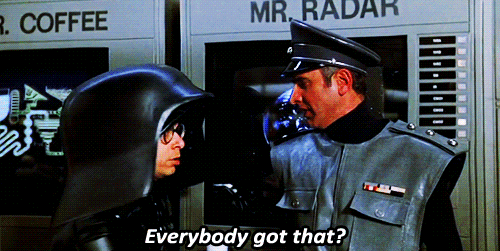The internet and ignorance have created the perfect vessel for its own version of the coronavirus (aka COVID-19) and we MUST FLATTEN THE CURVE.
The last couple of weeks has been full of inaccuracies and misinformation. As the COVID-19 pandemic continues on, I fear it will only get worse.
Why? It’s simple. We have turned into a “need to know now” society. If we have to wait any length of time for accurate information we get antsy. Being antsy leads to speculations and assumptions. We begin to seek out information from anywhere and anyone who has an opinion or knows someone who knows someone who maybe has a clue. At some point, we don’t even care who it comes from; if it sounds complicated and scientific-y enough then it must be true.

But let me be clear – not everything shared on social media is a fact.

If you’ve spent even five minutes on Twitter or Facebook (either in your own groups or the general newsfeed) in the last week or two, then you are probably brain-crampingly overwhelmed with thoughts, opinions, and conspiracy theories pertaining to COVID-19. Hell, even the news can’t get it right.
That’s because the information is changing at Ludacris speed. By the time we get the news, it’s old news.

We go to bed at night and when we wake up, the whole world has changed again. Every day in Alaska is a little like that for me.
By the time I wake up in the morning, y’all are on your third cup of coffee and you’ve shared eleventy billion things on Facebook. You’ve run marathons, had three meetings, and you’re halfway through your day.
But we, as a society, like misinformation, it’s possible that we relish in it. Misinformation has more holes in it than your favorite pair of underwear; you know you have no business wearing it anymore it but you simply can’t bring yourself to part with it. Rather than drag yourself to the store to shop for new underwear, the kind with only the required number of holes in it, you put that faded, stained, holier than Sunday morning underwear back on (are those supposed to be flowers on your panties or are they tiny coronaviruses, I can’t tell.)
The same goes for social media sharing; rather than track down a source or fact check, you send the post out into the public (or at the very least, your friends’ list). You do it quickly because like I said, we are a “need to know now” society and the faster you can get information out to your friends and family, the safer, more informed they will be. Right?
Wrong.
Consider for a minute that the misinformation you’re sharing IS the coronavirus. You know the symptoms, you have all of them and aside from being tested, you suspect you have it. Would you invite your grandma who has heart and lung conditions over for lunch? Hopefully not.
Yet, we keep on posting inaccurate and potentially harmful information and it needs to stop.
Last night, I was filling my tablet with ebooks (future post to come!) and I clicked back over to Facebook and read a post by a man in a local group I belong to. Obviously it was about the coronavirus. Right away, the information seemed… off. Just three days earlier, I watched a live webinar from the Adult Congenital Heart Association about COVID-19 and CHD patients (like myself). Between what I have read via the CDC, WHO, and the webinar, the information in the man’s post was not just contradictory but also missing information.
I did what any self-respecting know-it-all does, I called him out. I linked him to the ACHA webinar, which is now on YouTube and asked if he could tell us who his sources were or at the very least, can he link us to something he had read that supports what he was posting?
I moved on with my evening and as I was shutting down tabs (we will not discuss how many I had open, I had a lot of books, okay?!), I saw notifications on Facebook and I wanted to clear them. The gentleman I had called out had replied back to me but when I went to read his reply, the entire post was gone. Coincidence? I think not.
I then came across the same post, shared by one of my favorite people on the earth.

My suspicions had been confirmed: the post was making its rounds and people were sharing it like they were the experts.
I copied a bit of the text from the post and pasted it into Google. No surprise it showed up in search results on a few sites. One of which was a news station! (Remember what I said about even the news not being able to get the information correct?!)
Another search result brought up the post on Reddit. Both the news station and Reddit pointed back to a woman on Facebook.

Apparently inquiring minds wanted to know where she found her information and she was only too happy to share it!

I don’t really know what’s more concerning at this point, the fact that the post has had nearly 90,000 shares or that a news station picked it up and shared it too (scroll through the comments, those are always the best part).
Despite the inaccuracies of the post, there are still things to take away from it, as someone I love and respect very much pointed out:
… the bottom line is this is something to not take lightly especially when you live in a state where everything is shut down. I have a job where I have to go to work because no one there is certified to do the tests I do every day. Even though I am supposedly in the at-risk group, over 65… As with everything you read and hear you have to gleam the facts from the BS. So, go with whatever expert you believe the bottom line is that this is nothing to mess with or take lightly.
Look, folks, I’m not trying to tell you to stop informing or helping your fellow Facebook friend or family members, but I am telling you to please be sure you have the real deal before you post because what might look good on the surface, could turn out to be horribly wrong.

Instead of sharing things you can’t verify, try sharing and reiterating the things we know to be true:
- The coronavirus can live on surfaces for a number of days.
- Sing your ABCs while washing your hands.
- Social distancing and self-isolating is the way to go.
- Stay home if you are sick. That means no movie theaters, no restaurants, no parks.
- Even if you don’t have the symptoms, you could still take the coronavirus home to someone who is more susceptible to the virus: the elderly, people with compromised or weak immune systems, those with underlying respiratory or health conditions. <– Those are the reasons why we practice social distancing.
- The CDC and WHO are the best places for accurate and up to the minute information on the coronavirus.
And for the love of toast, STOP HOARDING THE TOILET PAPER.

In the coming days, and let’s be honest, weeks, I will share GOOD INFORMATION that you can put to use. You’ll laugh, you’ll make notes, maybe even bookmark the posts but you will hopefully stop cleaning out the grocery store shelves and draw on good instincts and common sense.

Who knows, maybe we’ll even turn into the kind of society that looks out for one another. I know, CRAZY, right?!
In the meantime, get cozy with the people in your household, reinstitute family game night, take the time to do some homeschooling (and thank your stars for the awesome job teachers do), start a new hobby, and learn how to be an introvert like the rest of us.

If you’re interested, here is the webinar from the ACHA. I suggest packing a lunch and taking notes. The first 25 minutes or so are the best for educating yourself on viruses and transmission in general and if you want to deep dive, the rest is how it pertains to CHD patients.
I know what you’re thinking…

Yes, I’m sure we will.

Leave a Reply